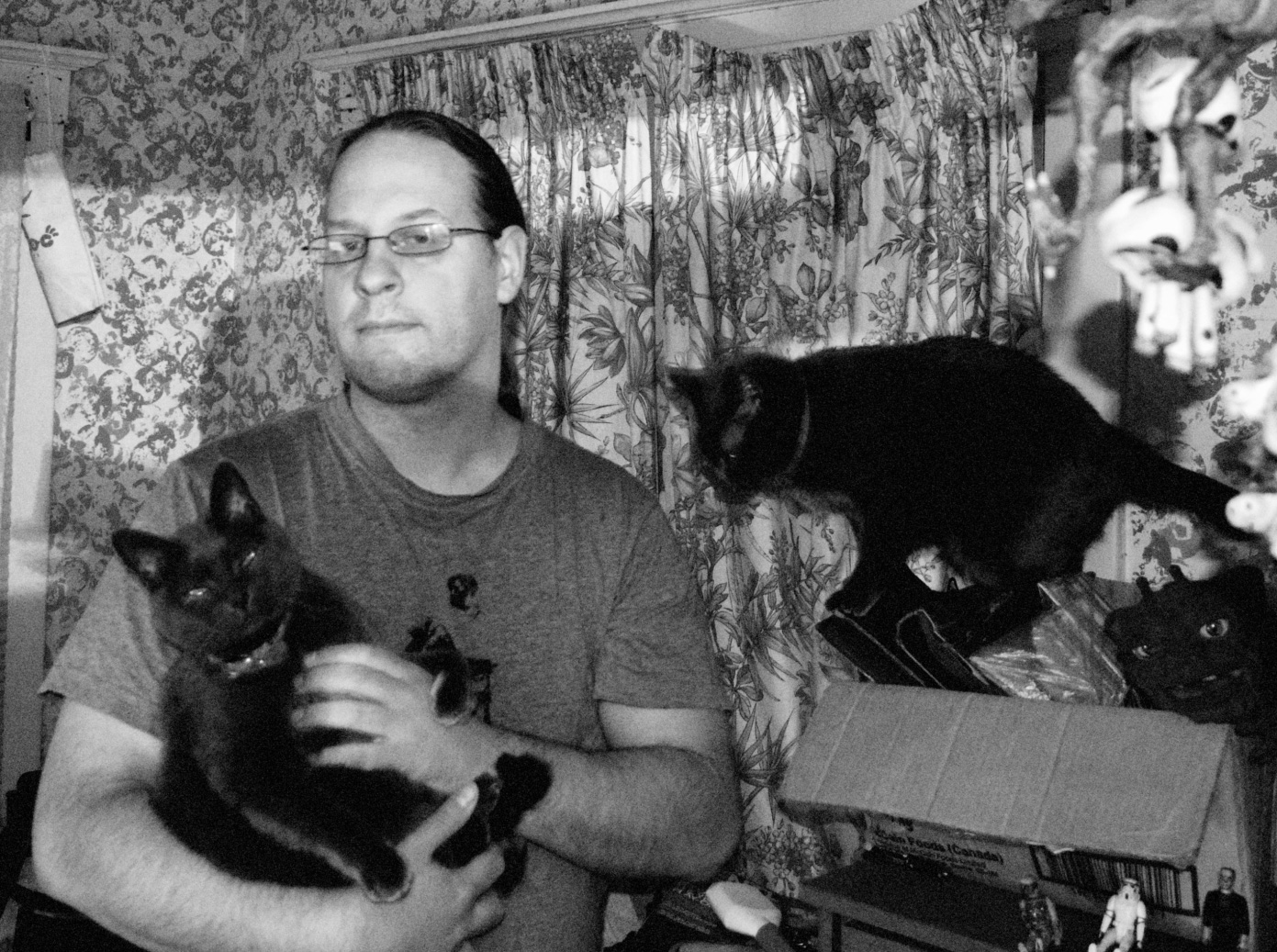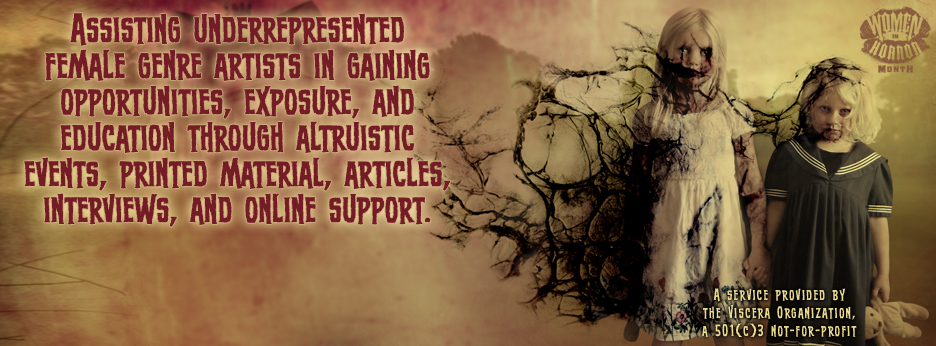 Deeply hidden along the mysterious coast of Canada, there is another Woman in Horror. Today’s guest is Marcie Lynn Tentchoff.
Deeply hidden along the mysterious coast of Canada, there is another Woman in Horror. Today’s guest is Marcie Lynn Tentchoff.
When did you discover poetry and who/what influenced you?
I honestly can’t be sure when I first discovered poetry. It has always seemed to be an important part of my life. My mother loved poetry, and we shared story poems from when I was very little onwards. She also introduced me to the story poems within folk music, which probably added to the start of my addiction. Then again, it can’t have helped that my father started reading Shakespeare to me when I was seven. By that point my tragic love of poetry was probably fated. One can’t hear the chants of the three witches from Macbeth as a child, in the dimly lit cabin of a slowly rocking boat, without being at least somewhat doomed to adore rhyme, darkness, and drama.
Why do you write poetry?
This question sort of boggles me. How could I not write poetry? Lines show up in my head. Patterns, rhythms, and twists haunt me if I don’t write them down.
What do you think is the most difficult aspect in writing poetry?
I don’t find the writing of poetry to be difficult. Remembering, on the other hand, that readers can’t see into the murky mess that is my mind, and that I might have to flesh things out a bit more for them, that can be tough.
Midnight
There’s no lock on the door
since the Midnight Men came,
with their pale, grinning faces
their tire-track eyes,
and the sound of the shadows
seems louder somehow,
on the street that runs empty
past Emily’s house.
She still plays there sometimes
on the grey concrete stoop,
with the screen door wide open
to welcome the rays
that spread out from the dish
on the middle school roof –
education for all’s what
the Midnight Men say.
And the grown ups all smile
as they murmur along
with the lessons they learn
in the new, better way,
while they work at new jobs
that the Midnight Men brought
till their finger bones show
white on red, like their teeth.
It’s much safer these days —
no one worries at all
about vandals or thievery —
those things are done,
and if every gaze shies from
the old Northgate Mall
no one says much about it
or questions the smell.
But young Emily wishes
her life would change back
to the way that it was
before fog drifted down
from the cracks in the sky
where tomorrow peeked through,
before Midnight came early
and never moved on.
## First Published in Star*Line
Do you explore particular themes? What are they and why?
 I love to write about bitterness, about making difficult and possibly the wrong choices. I also love writing about how things can be different when seen from differing viewpoints, and how the tales behind known characters and character types are often darker and more complex.
I love to write about bitterness, about making difficult and possibly the wrong choices. I also love writing about how things can be different when seen from differing viewpoints, and how the tales behind known characters and character types are often darker and more complex.
What is it about dark (speculative) poetry that you think attracts people to read it?
I think everyone has dark moments and thoughts and that reading dark poetry helps to unlock and almost soothe those thoughts, much as listening to sad songs can soothe a person who is hurting. It is easier to deal with one’s own sorrow and despair if it is shared with others. Of course, I also think that there is, perhaps, an extra dose of truth to be found in darkness. These days especially, truth is valuable, and all too scarce.
Diggers
“Is that a thighbone?”
Smile and tell him
that you think it is.
He’s kind of cute,
if you discount
his hump and scarring,
and anyway,
it never hurts to
make an extra friend
in digger circles,
someone who can
swap you limb for limb,
or brain for brain.
One never knows
when one might need an
eyeball, or the toe of
a birth-strangled babe,
or even, as you do right now,
the perfect hips to match
with last year’s waist.
## First published in Dreams & Nightmares
What projects (publications) are you working on or have coming up?
I am currently trying to map out a new dark poetry collection, but somehow it keeps getting waylaid as I realize that there are new markets that might want some of the poems that I am foolishly hoping to save for that collection. We’ll see whether my writing can outpace my need to send work out.
Is there anything else you’d like to say about writing, horror or poetry?
In writing, as in acting, villains are always the most fun to play with. Heck, even fairy tale based movies prove this, since the villain songs are always the best and the most memorable. Writing the dark, the horrific, gives writers (myself included) the chance to truly immerse ourselves in the villainous mindset.
Across the Floor
You held my eyes while dancing
Across the floor,
Your dainty feet
Twirling your gore-red lips
In smiling spirals.
And still,
While I weep blindly,
Bloodily,
In my corner…
You hold my eyes.
## First Published in Sometimes While Dreaming
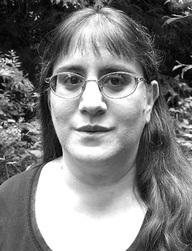 Marcie Lynn Tentchoff is a poet/writer/editor/acting teacher who lives on the west coast of Canada with her various family members, both humanoid and rather obviously not. Her work has appeared in such publications as Strange Horizons, Polu Texni, Star*Line, Polar Borealis, and Dreams & Nightmares. There have been two collections of her poetry, Sometimes While Dreaming, and Through the Window: A Journey to the Borderlands of Faerie, as well as On the Brink of Never, a collection of poems by her writing group.
Marcie Lynn Tentchoff is a poet/writer/editor/acting teacher who lives on the west coast of Canada with her various family members, both humanoid and rather obviously not. Her work has appeared in such publications as Strange Horizons, Polu Texni, Star*Line, Polar Borealis, and Dreams & Nightmares. There have been two collections of her poetry, Sometimes While Dreaming, and Through the Window: A Journey to the Borderlands of Faerie, as well as On the Brink of Never, a collection of poems by her writing group.
Marcie won an Aurora Award for her long Arthurian poem, “Surrendering the Blade,” and other works of hers have been nominated, short, or long-listed for Rhysling, Stoker, and World Fantasy Awards.
She is an active member of the HWA and of the SFPA, and while for a long time she found it difficult to accept that what she wrote could often be called horror, after enough people asked her why there was so much blood, pain and suffering in her sweet little love poems, she started to understand that maybe horror was as good a word as anything else.
“Coins for the Ferryman” currently on Polu Texni http://www.polutexni.com/?paged=4
“Go Bag” currently up in editor’s choice at Star*Line http://sfpoetry.com/sl/issues/starline42.4.html

 When did you discover poetry and who influenced you?
When did you discover poetry and who influenced you?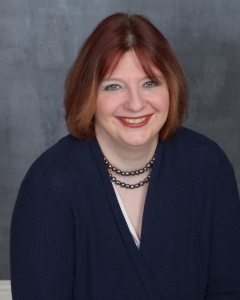 husband and son. Her poetry has received Rhysling, Dwarf Star, and Pushcart nominations and has been published at over fifty venues; her short fiction has appeared in Galaxy’s Edge, Compelling Science Fiction, and Pseudopod. For more about her work, please see
husband and son. Her poetry has received Rhysling, Dwarf Star, and Pushcart nominations and has been published at over fifty venues; her short fiction has appeared in Galaxy’s Edge, Compelling Science Fiction, and Pseudopod. For more about her work, please see 